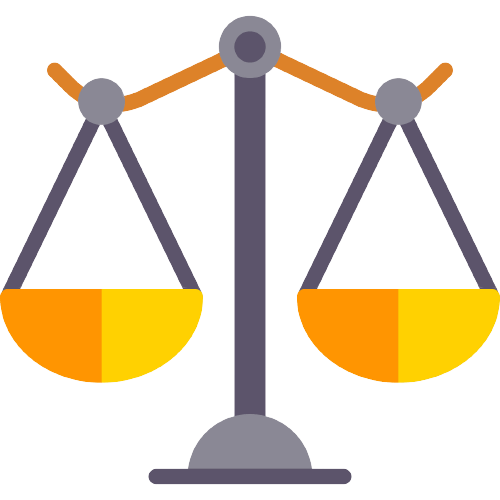Blockchain technology is a digital ledger system that records transactions securely, transparently, and in a decentralized manner. It is essentially a database that is shared among a network of computers or nodes, where each node has a copy of the database.
- When a transaction occurs, it is verified and validated by the network of nodes, and then added to a block.
- Each block contains a group of transactions that are time-stamped, and once a block is added to the blockchain, it cannot be altered or deleted.
- The security of Decentralized Ledger Technology (DLT) comes from its decentralized nature, as there is no single entity controlling the network.
- Instead, each node on the network has a copy of the database, and any changes or updates to the database must be approved by a majority of the nodes.
- Furthermore, blockchain technology utilizes cryptography to ensure the authenticity and integrity of transactions.
- Each block in the chain is linked to the previous block using a cryptographic hash function, which creates a unique digital signature for each block.
- This ensures that any attempted changes to a block would be immediately detected by the network.
Overall, blockchain technology has the potential to revolutionize many industries by providing a secure, transparent, and decentralized system for recording and verifying transactions.
Blockchain technology is becoming increasingly important to professional accountants as it has the potential to transform the accounting profession. Here are some reasons why:
- Improved Efficiency: Blockchain technology can automate many accounting processes, reducing the need for manual data entry and reconciliation. This can improve the efficiency of the accounting process and reduce the risk of errors.
- Enhanced Transparency: Cryptographic Ledger technology provides a transparent and tamper-proof record of transactions, which can help to increase trust and confidence in financial reporting. This is particularly important in industries where transparency is critical, such as auditing and financial reporting.
- Increased Security: Blockchain technology provides a secure and decentralized system for recording and verifying transactions. This can help to reduce the risk of fraud, as any attempted changes to a block would be immediately detected by the network.
- Cost Savings: By automating accounting processes and improving efficiency, blockchain technology can help to reduce costs for businesses and accounting firms.
- New Opportunities: As Cryptographic Ledger Technology continues to evolve, it is likely to create new opportunities for accountants in areas such as auditing, financial reporting, and regulatory compliance.
- Improved Compliance: Blockchain technology can help to improve compliance with regulations by providing a transparent and tamper-proof record of transactions.
Overall,Cryptographic Ledger Technology has the potential to transform the accounting profession, and it is important for professional accountants to stay informed about the latest developments in this area. By embracing blockchain technology, accountants can improve efficiency, enhance transparency, increase security, and create new opportunities for growth and innovation.
While Decentralized Ledger Technology (DLT) offers several benefits to professional accountants, there are also several challenges that need to be addressed when adopting this technology. Here are some of the key challenges:
- Lack of Standardization: There is currently a lack of standardization in the blockchain technology industry, which can make it difficult to develop and implement consistent accounting practices.
- Integration with Existing Systems: Integrating Cryptographic Ledger Technology with existing accounting systems can be complex and time-consuming, especially for businesses that have been using the same systems for many years.
- Regulatory Uncertainty: The regulatory environment around blockchain technology is still evolving, and there is uncertainty around how regulators will approach this technology in the future. This can make it difficult for businesses and accounting firms to adopt blockchain technology.
- Skills Gap: There is currently a shortage of skilled professionals who are knowledgeable about blockchain technology, which can make it difficult for businesses and accounting firms to find the right talent to implement this technology effectively.
- Security Risks: While Decentralized Ledger Technology (DLT) is generally considered to be secure, there are still risks associated with cyberattacks and data breaches. Businesses and accounting firms need to take appropriate security measures to protect against these risks.
- Scalability Issues: Blockchain technology is still relatively new, and it can be difficult to scale up blockchain networks to support large numbers of users or transactions.
Overall, while blockchain technology offers several benefits to professional accountants, there are also several challenges that need to be addressed before this technology can be adopted on a large scale. These challenges include a lack of standardization, integration with existing systems, regulatory uncertainty, a skills gap, security risks, and scalability issues.
Implementing Blockchain Technology in Accounting: Challenges and Best Practices
Implementing blockchain technology in accounting can offer several benefits, including increased transparency, security, and efficiency. However, there are also several challenges that need to be addressed. Here are some of the challenges and best practices for implementing blockchain technology in accounting:
Challenges:
- Lack of Understanding: One of the biggest challenges is a lack of understanding of how blockchain technology works and its potential applications in accounting. This can make it difficult to effectively implement and integrate the technology into existing systems.
- Integration with Existing Systems: Another challenge is integrating blockchain technology with existing accounting systems. This can be a complex and time-consuming process that requires careful planning and coordination.
- Data Quality and Standards: Blockchain technology relies on accurate and consistent data, which can be a challenge if the data is of poor quality or if there are no industry standards for data management.
- Regulatory Compliance: Compliance with regulatory requirements can be a challenge when implementing blockchain technology in accounting, especially since regulations are still evolving in this area.
- Cost: Implementing blockchain technology can be expensive, especially if significant changes are required to existing systems and processes.
Best Practices:
- Educate Staff: To overcome the lack of understanding, it’s important to educate staff about the technology and its potential applications in accounting. This can help build support for the project and ensure successful implementation.
- Start Small: It’s recommended to start with a small-scale pilot project to test the technology and work out any issues before scaling up to larger implementations.
- Develop a Strategy: A comprehensive strategy that outlines the goals, timeline, budget, and risks associated with the implementation of blockchain technology is essential.
- Address Data Quality and Standards: To ensure accurate and consistent data, it’s important to establish data quality standards and develop processes for data management.
- Work with Regulators: Collaborating with regulators and staying up-to-date on regulatory requirements can help ensure compliance with relevant regulations.
- Evaluate Costs and Benefits: A cost-benefit analysis can help evaluate the potential benefits of implementing blockchain technology in accounting and determine whether it’s worth the investment.
Overall, implementing blockchain technology in accounting requires careful planning, collaboration, and education. Addressing the challenges and following best practices can help ensure successful implementation and integration of the technology into accounting systems.
Blockchain technology has the potential to significantly impact taxation and compliance for professional accountants. Here are some ways in which blockchain technology can impact taxation and compliance:
- Increased Transparency: Decentralized Ledger Technology (DLT) can provide a transparent and secure platform for recording transactions, making it easier to track and audit transactions for tax compliance.
- Automation of Processes: Smart contracts, which are self-executing contracts with the terms of the agreement directly written into code, can automate tax-related processes such as tax collection and filing.
- Improved Accuracy: Blockchain technology can reduce the likelihood of errors and fraud by providing a tamper-proof record of transactions.
- Streamlined Auditing: Blockchain technology can simplify the auditing process by providing auditors with immediate access to transaction records in a secure and transparent manner.
- Global Standardization: Blockchain technology can facilitate global standardization of tax regulations and compliance, making it easier for businesses to comply with tax laws across different jurisdictions.
However, there are also challenges that need to be addressed when it comes to implementing blockchain technology in taxation and compliance:
- Regulatory Uncertainty: There is still regulatory uncertainty surrounding the use of blockchain technology in taxation and compliance, and regulations are still evolving in this area.
- Integration with Existing Systems: Integrating blockchain technology with existing tax systems can be challenging and require significant changes to existing processes and systems.
- Privacy Concerns: Decentralized Ledger Technology (DLT) transparency can raise privacy concerns when it comes to sensitive tax-related information.
- Cybersecurity Risks: Blockchain technology can be vulnerable to cyber-attacks, and security measures need to be implemented to mitigate these risks.
In conclusion, blockchain technology has the potential to revolutionize taxation and compliance for professional accountants, but its implementation needs to be carefully planned and executed to address the challenges and maximize the benefits.
Blockchain Technology and Cost Savings in Accounting: A Case Study of Successful Implementations
Decentralized Ledger Technology (DLT) has been shown to have the potential to significantly reduce costs in accounting. In fact, there are several successful case studies of blockchain implementation in accounting that have resulted in cost savings. Here are some examples:
- KPMG: KPMG implemented a blockchain solution for their revenue recognition process, which resulted in a 40% reduction in time spent on the process and a 20% reduction in costs.
- PwC: PwC implemented a blockchain solution for their audit confirmation process, which resulted in a 50% reduction in time spent on the process and a 75% reduction in costs.
- Deloitte: Deloitte implemented a blockchain solution for their supply chain management process, which resulted in a 20% reduction in inventory costs and a 15% reduction in administrative costs.
- Ernst & Young: Ernst & Young implemented a blockchain solution for their wine tracking process, which resulted in a 99.9% reduction in the time it takes to track a bottle of wine from vineyard to store.
The cost savings achieved by these companies were primarily due to the increased efficiency and accuracy provided by blockchain technology. Blockchain technology can automate processes, reduce the need for intermediaries, and provide a transparent and secure record of transactions, all of which can result in significant cost savings for accounting processes.
In conclusion, there are several successful case studies of blockchain implementation in accounting that have resulted in significant cost savings. Blockchain technology has the potential to revolutionize the accounting industry by increasing efficiency, accuracy, and transparency, and reducing costs.




















